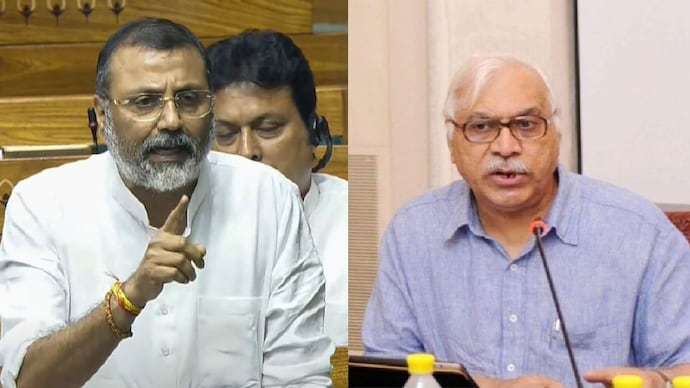The controversy began when SY Quraishi, who served as India’s 17th Chief Election Commissioner from 2010 to 2012, expressed his views on the Waqf Amendment Act, questioning the motives behind the government’s approach towards Waqf properties and suggesting that the act required a more inclusive and transparent debate. Quraishi, known for his advocacy on electoral reforms and minority rights, highlighted what he perceived as a growing sentiment against minority institutions.
Responding to this post, Nishikant Dubey lashed out at the former CEC, accusing him of abandoning neutrality and promoting a communal agenda. “SY Quraishi was not an Election Commissioner, but a Muslim Commissioner,” Dubey wrote, drawing immediate criticism from opposition leaders, activists, and civil society groups who deemed the comment inappropriate and divisive.
Several political figures and commentators condemned Dubey’s statement, calling it a blatant attempt to communalize an issue that requires thoughtful discussion. Opposition parties accused the BJP of systematically targeting minority voices and misusing official positions to fan religious polarization.
The Election Commission of India has so far refrained from commenting on the matter, but former bureaucrats and ex-commissioners have voiced concerns over such remarks undermining the dignity of constitutional offices. Many emphasized that former CEC Quraishi’s religious identity had never influenced his work and that such personal attacks were a disservice to democratic institutions.
SY Quraishi, in a dignified response, said he stands by his statements and will continue to speak on matters of national interest. “As a citizen of this country, I have every right to express my opinion. My record as CEC speaks for itself,” he stated.
The row highlights the growing friction between political rhetoric and institutional integrity, especially ahead of critical state and national elections. While public figures from all sides weigh in, many are calling for restraint and a return to civility in political debates — warning that personal jabs based on religion only serve to deepen divisions in an already polarized climate.

